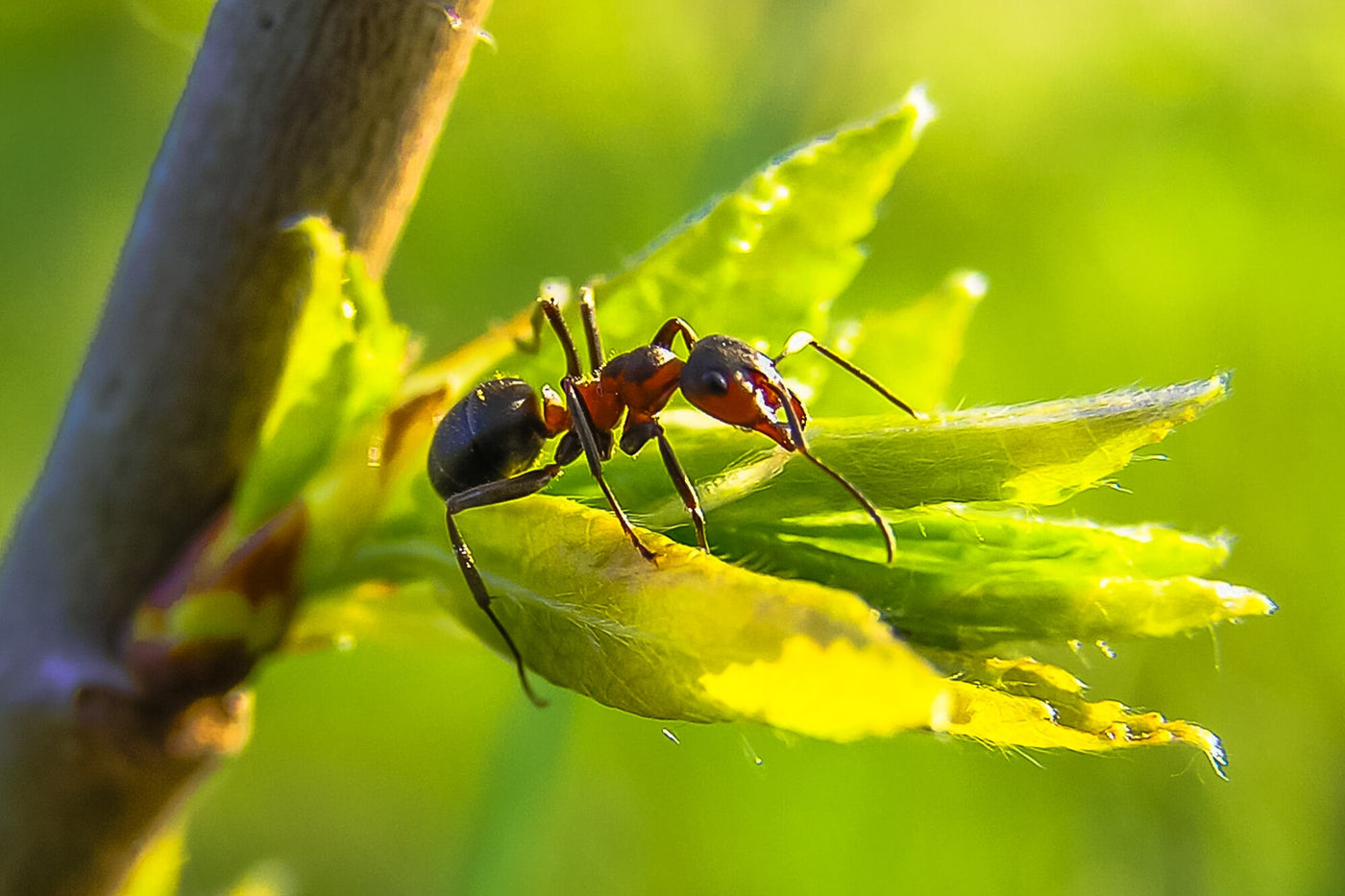Your Cart is Empty

Most ants are obviously very, very, very small creatures. It would take almost 500 of them to match the height of a 6-foot-tall person. It would take around 300 million of them to equal the weight of a 200-pound person.
With these things in mind, you might be under the impression that there is absolutely no way ants could fit brains into their tiny bodies. And even if they could, how much information would ant brains even be able to hold?
"Do ants have brains?" is a question you may have considered in the past. You may have also wondered, "Are ants smart?", after seeing a colony of them scurrying around.
Ant brains aren't anything like human brains, but they do exist. Ant intelligence isn't near the same level as human intelligence, but it also exists.
In this article, we're going to provide you with a newfound perspective on ant brains and the intelligence of ants. It'll have you looking at ants in a whole new light from now on.
First things first: Let's provide you with a quick and easy answer to the question, "Do ants have brains?" The answer is a resounding "yes!"
Just like most other creatures roaming the Earth, ants do, in fact, have brains that they rely on to help them carry out tasks. They also have nervous systems that are designed to help ants do things like sense what's going on around them and make decisions accordingly.
All of this being said, it's worth noting that ant brains aren't anywhere near as complex as human brains. But just like ants have hearts, they have brains inside their bodies that play important roles in their overall well-being.
There has been a lot of speculation about how many nerve cells are found in the average human brain. For a long time, scientists believed humans had more than 100 billion nerve cells in their brains. But in more recent years, some researchers have suggested humans might only have between 85 billion and 90 billion nerve cells.
Regardless of how many nerve cells humans might have in their brains, they have substantially more nerve cells than ants do. The number of nerve cells in an ant's brain will vary from one ant species to the next. But generally speaking, most ants have around 250,000 nerve cells in their brains.
This relatively small number helps explain why ant intelligence isn't anywhere close to being on par with human intelligence. At the same time, it also proves that the intelligence of ants is real and stems from the nerve cells they have in their ant brains.
Ant brains might be on the smaller side, but they're designed in such a way that enables them to make the most of the nerve cells they have available to them. Ant brains are divided up into what are called ganglia.
Some people have credited these ganglia with acting like tiny data processors in the brains of ants. Each separate ganglion is responsible for controlling something different, such as:
One of the big things that sets ant brains apart from human brains, though, is that the signals from ant brains only travel in one direction. Human brains, on the other hand, send signals down people's spinal cords, and those signals eventually travel back to the brain after reaching their destination.
This makes human brains more complex. But it doesn't change the fact that ants still have brains that send out signals to control other parts of their bodies.
Ants aren't ever going to be as smart as humans. Their brains aren't built to digest information and hold onto it for long periods of time like human brains. But that doesn't mean ants aren't smart in their own way.
Over the years, studies have been done on ants, and many of them have shown that ants have remarkable problem-solving skills when you consider their size and, more specifically, the size of their brains.
Ants are almost always on the hunt for food, and when they find it, they know how to attack it. They also know how to get to different food sources by taking the shortest paths possible. They've even come up with innovative ways to gather food and bring it back to their colonies.
All of these things help demonstrate ant intelligence. They also show just how powerful ant brains can be in spite of their small size.
Ants can show their intelligence on their own at times. But more often than not, ants will showcase just how smart they can be when they're working together as a colony.
Certain researchers have actually gone as far as to suggest that ant colonies actually act a lot like collective organisms with individual ants all working together for the greater good.
Individual ants will typically forage for food on their own, but they'll also use pheromones to communicate with other ants and let them know when they've found food so that these ants will follow their lead.
By doing this, it's almost as if ants are "putting their heads together" in a literal sense and using all their small brains to create one big brain that can complete complex tasks. It's pretty amazing when you think about it and should give you a new level of respect for ants and what they're able to accomplish.
The answer to the question, "Do ants have brains?", is "yes." But as you've seen here, ant brains are more complex than you might think.
The intelligence of ants is often underappreciated because of the size of their brains. But ants can do incredible things when they form colonies and work together toward a common cause.
You can experience this for yourself by picking up an ant farm and watching ants in action. Shop around for ant farms and everything you'll need for one on our site.